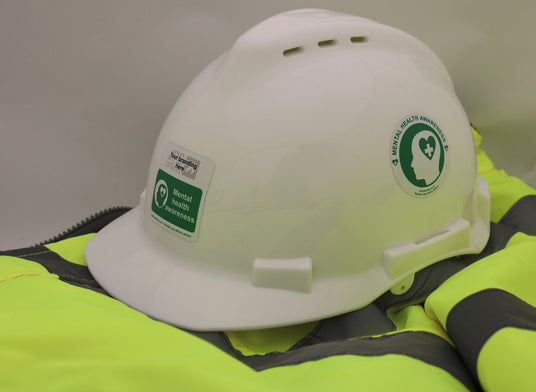
What is mental health?
Just like physical health, everyone has mental health that needs to be taken care of. Mental health refers to our emotional, psychological, and social wellbeing. It influences how we think, feel, and act, and it plays a critical role in how we handle stress, relate to others, and make choices.
Mental health is as important as physical health. When our mental health is good, we are able to enjoy life, maintain balance in our responsibilities, and build resilience to handle difficult situations. However, when we face mental health problems, it can affect how we think and feel, making it challenging to manage daily life. This can impact family life, relationships, work, and the ability to engage with the wider world.
Mental health and wellbeing signs
View allReceive a free pack of 10 mental health awareness circle stickers with any order. Simply add to your basket and use code WELLBEING10 at checkout.

How to improve your mental health
Good mental health doesn't mean you're always happy or unaffected by challenges. You can have good mental wellbeing even with a mental health issue. If you're struggling, here are some helpful tips:
Share Your Feelings
Talk to someone you trust about how you're feeling. Sharing your feelings is a crucial step in taking charge of your wellbeing.
Keep Active
Regular exercise boosts self-esteem, improves sleep, and enhances concentration. Find activities you enjoy, such as going to the gym, walking, or running.
Eat Well and Drink Sensibly
Your diet significantly impacts your mood. Plan healthy meals and take breaks to eat away from your desk. Try to limit alcohol consumption as it can worsen feelings of depression or anxiety.
Keep in Touch
Maintain relationships and friendships, as they are vital for mental health. Recent studies show that loneliness can be as harmful as smoking or obesity.
Ask for Help
Don't hesitate to seek help. Utilise your employer's Employee Assistance Programme or ask HR about occupational health support. Your GP can also refer you to specialists if needed.













